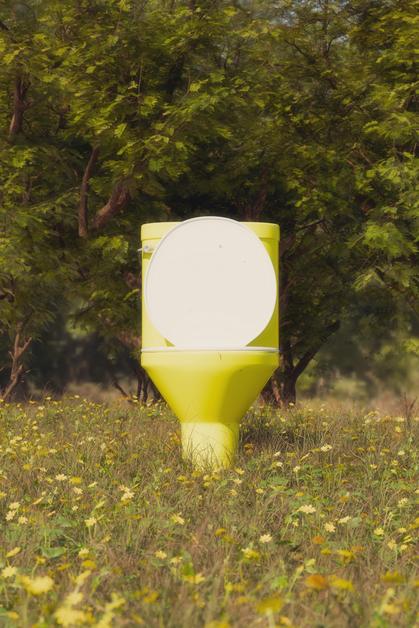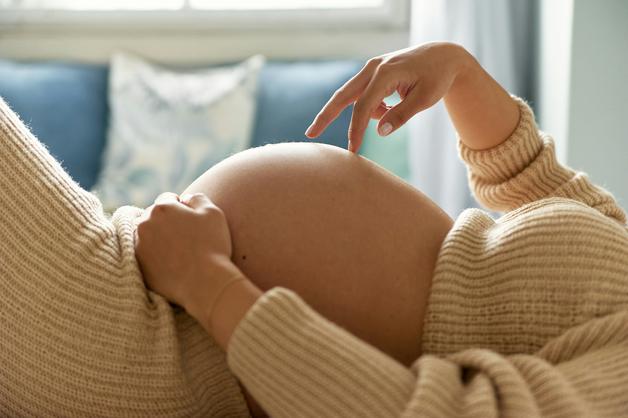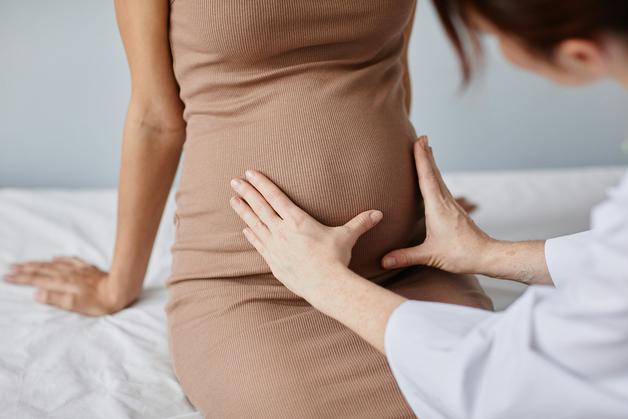Picture this: you’re finally comfortable, perhaps settling in after a long day, and suddenly, once again, the undeniable urge interrupts—another trip to the bathroom. Frequent urination pregnancy: a phrase that can evoke both exasperation and curiosity among expectant parents. Why does it seem never-ending? Is it just the body’s way of complaining, or is something more at play? Navigating these changes can challenge patience, disrupt daily activities—even a good night’s sleep becomes an elusive luxury. Exploring the delicate interplay of hormones, anatomy, and lifestyle adjustments can help transform this tiring routine into a more manageable experience. Ready to demystify frequent urination pregnancy? Let’s explore every angle—causes, warning signs, practical relief, and evidence-based reassurance.
What Triggers Frequent Urination Pregnancy? Science Unpacked
Hormones in Overdrive: The Invisible Messengers
From the earliest days, frequent urination pregnancy finds its roots in the primal dance of hormones. hCG (human chorionic gonadotropin)—a pregnancy-specific hormone—rapidly multiplies after conception, ordering increased blood flow to your pelvic organs. With kidneys filtering more, the bladder fills at lightning speed. Not only that, but progesterone—the calm inducer—relaxes the smooth muscle tissue. The result? Less resistance, less “holding power,” and more urgency, sometimes accompanied by minor incontinence when you least expect it (laughing, sneezing, dancing with joy?).
Anatomy Shifting: Space Invaders in Action
As weeks progress, the uterus acts much like an expanding balloon, encroaching on the territory once reserved for your bladder. Especially in the third trimester, bladder pressure in pregnancy becomes a daily reality. Even small volumes of urine can provoke an intense urge, driven by both positional changes and heightened bladder sensitivity. The urinary tract—a series of connected organs from the kidneys down to the urethra—adapts quickly, but not without sending out those frequent signals.
Blood Volume: The Hidden Multiplier
Physiologically, total blood volume increases by up to 50%, a dramatic change. Frequent urination pregnancy is an inevitable consequence—more plasma means more work for your kidneys, giving “healthy circulation” a whole new meaning.
How Frequent Urination Pregnancy Evolves Throughout Each Trimester
First Trimester: The Surprise Onset
For many parents, frequent urination pregnancy starts before any outward body changes appear. Hormonal shifts act quickly, and the uterus (still small but mighty) settles against the bladder. Is it surprising, this nightly trek to the bathroom, often before you’ve announced your news to anyone? Hardly. You may wonder: is this truly normal? Typically, yes—especially if there’s no pain or fever in sight.
Second Trimester: The Temporary Respite
As the uterus moves upward, away from the bladder, many parents breathe a sigh of relief. Frequent urination pregnancy may decrease for a while. It’s a reprieve, not a promise: some reclaim longer nights, some enjoy errands unhurried by restroom searches. But for others, symptoms persist—each person’s journey is unique.
Third Trimester: The Return of the Urge
The cycle comes full circle as the uterus makes its descent, prepping for childbirth. Bladder irritation during pregnancy can trigger a “now or never” urgency, even when little urine is present. Leaks may become more frequent as pelvic floor muscles tire. Expect the unexpected: sudden laughter, sharp coughs, even changing position in bed may lead to small accidents.
What’s Normal—And What Isn’t? Sorting Symptoms
Frequent—but Painless—Urination: Usually Reassuring
The urge alone, without discomfort, generally signals healthy adaptation. But frequent urination pregnancy requires vigilance for red flags like:
- Pain or burning (possible sign of urinary tract infections pregnancy)
- Blood in urine or pronounced cloudiness
- Strong, foul odor
- Persistent fever, chills, or unexplained fatigue
- Low back or abdominal pain
These symptoms suggest more than routine change—prompt medical evaluation is strongly advised.
Distinguishing Between Frequent Urination and Incontinence
Consider this: needing to go frequently isn’t the same as stress incontinence. With frequent urination pregnancy, you reach the restroom in time. With incontinence, leaks escape before you’re ready—often triggered by coughing or even gentle activity. Hormonal influences soften the pelvic floor’s tone, but targeted exercises (more on these soon) can bolster muscle support.
What Makes Frequent Urination Pregnancy Worse?
- Caffeine and Other Diuretics: Coffee, tea, energy drinks—these ramp up urine production, multiplying trips to the bathroom.
- Constipation: Slow bowel movements add abdominal pressure, squeezing the bladder with each day of delay. “Go with the flow”—fiber-rich fruits, vegetables, and whole grains keep both systems happy.
- Tight Clothing: Snug belts and stiff waistbands can exaggerate bladder sensation. Soft, stretchy clothes (think cotton, not compression) decrease discomfort.
- High-Sugar Diet: Excessive sugar intake can sometimes escalate thirst and urination. Balancing carbohydrate sources offers double benefits—stable energy and fewer nighttime interruptions.
Protecting Comfort: Practical Advice for Everyday Life
Mastering Hydration—No, Don’t Cut Back
Counterintuitive but true: reducing water won’t reduce frequent urination pregnancy safely. Dehydration compromises kidney function and infection defense. Aim for 1.5–2 liters daily, distributed steadily. Simply taper fluids before sleep for fewer night wakeups.
Quiet Habits, Big Results
Don’t delay urination—holding in urine raises infection risk. Empty your bladder as soon as the urge strikes and try gently leaning forward on the toilet: this position helps the bladder fully empty, minimizing residual urine where bacteria could linger.
Coping with Leaks
Absorbent, fragrance-free pads designed for light urinary incontinence in pregnancy can safeguard clothing and self-confidence. Breathable fabrics drastically reduce irritation.
On the Move: Smart Outings
Loose clothes, cotton underwear, and restroom breaks before leaving home—simple steps, but powerful. When out, prioritize venues with accessible bathrooms. Stressing less about emergencies lets you enjoy daily outings more fully.
Hygiene and Infection Prevention
- Always wipe front to back after using the toilet—key for avoiding bacterial transfers.
- Urinate after intercourse—this helps flush out potential bacteria from the urethral opening.
- Opt for gentle, fragrance-free cleansing products to maintain the urinary flora and pH balance.
Nutrition’s Subtle Influence
Boost your daily fiber with whole grains, lentils, berries, and leafy greens—digestion thrives, and the bladder breathes easier when the bowels cooperate. Some research—though mixed—suggests that alkaline foods like spinach or almonds can support a healthy urinary environment.
Cranberry: Potential, With Precautions
Cranberries have a long-standing reputation for helping prevent urinary tract infections, yet scientific consensus is nuanced. If considering cranberry supplementation, discuss this with your provider: safety during pregnancy must always take priority.
The Magic of Pelvic Floor Exercises
These simple but potent routines—often called Kegel exercises—can tilt the odds in your favor. By engaging and strengthening the pelvic floor, expect better bladder control now, plus safer delivery and faster postpartum recovery. The drill? Contract as if halting urine midstream, hold 5–10 seconds, then release. Repeat in sets of ten, three times a day. Over time, these invisible workouts make a significant difference to the experience of frequent urination pregnancy.
When Reassurance Isn’t Enough: Signs to Consult Promptly
Not every symptom deserves a wait-and-see attitude. Immediate care is best for:
- Burning or pain with urination
- Cloudy or bloody urine, or sudden color changes
- Fever, chills, lingering back or pelvic pain
- A change in urination frequency/intensity that defies explanation
Routine prenatal care involves urine screening in pregnancy precisely to catch infections early, especially the so-called “silent” ones lacking overt symptoms.
Special Circumstances: IVF and Fertility Treatments
Frequent urination pregnancy after assisted reproductive technologies—including IVF—can be magnified due to elevated hormones and rapid uterine adaptation. Always notify your healthcare provider if new or unfamiliar discomfort develops. Monitoring remains paramount, given the sometimes higher risks associated with intervention-driven conceptions.
Myths vs. Facts: Clearing the Fog
- “Frequent urination pregnancy means you drink too much water.” Hormones and anatomy—not hydration alone—are to blame.
- “Just drink less, problem solved.” Dehydration worsens infection risk and overall health.
- “It always signals infection.” Normal pregnancy adaptation causes most of the urge. Only additional warning signs point to danger.
- “You’re only affected early on.” The urge often returns as the due date draws near—and may briefly linger after birth.
- “It’s just the baby pressing on your bladder.” Yes, but hormones and kidney activity are equally involved.
After Delivery: What Comes Next?
The days after birth may mimic the frequent urination pregnancy experience, as the body expels accumulated fluids. For most people, urinary patterns stabilize within six weeks. Occasionally, mild leaks persist longer, particularly after vaginal birth—but regular pelvic floor training helps restore long-term function.
Key Takeaways
- Frequent urination pregnancy is an expected response to surging hormones, anatomical shifts, and heightened organ activity.
- Pain-free urination, even if frequent, is usually normal—alarm bells should ring with pain, blood, odd colors, or fever.
- Hydration is non-negotiable—spread intake over the day, adjust timing near bedtime.
- Healthy bladder habits, smart nutrition, and attentive hygiene collectively reduce discomfort and risk.
- Absorbent pads and comfortable clothing safeguard dignity when bladder control is unpredictable.
- Pelvic floor exercises in pregnancy are effective, discreet tools for both prevention and recovery.
- Don’t hesitate to seek professional input if symptoms escalate or new warning signs appear. Compassionate support is always available.
For tailored support and free child health questionnaires, download the Heloa app and unlock personalized advice—empowering you to manage frequent urination pregnancy with confidence and peace of mind.
Questions Parents Ask
Can frequent urination be an early sign of pregnancy?
Absolutely. Many parents notice the need to urinate more often within the first few weeks following conception. This change is linked to hormonal adjustments and an increase in blood flow to the pelvic area, even before any visible baby bump appears. If you observe this symptom soon after a missed period, it can be one of the first subtle clues that pregnancy has begun. Rassurez-vous, this is a frequent and expected adjustment in early pregnancy.
How long does frequent urination last during pregnancy?
Frequent urination often begins in the initial weeks and may change throughout your pregnancy. For some, the sensation softens during the second trimester, offering a brief respite, yet it can become more noticeable again as the baby grows in the third trimester. In most cases, the urge diminishes after birth, as your body gradually returns to its regular patterns. If you continue to experience it for several weeks post-delivery, c’est tout à fait normal—your body is simply readjusting.
Does everyone experience frequent urination in pregnancy?
Each person’s journey is unique. Many people will notice they need to go more often, while others find there’s little change. Factors such as natural bladder sensitivity, daily fluid intake, and individual body responses to hormonal shifts can all play a role. No matter your experience, remember that every pregnancy is different, and both situations—needing more breaks or not—are just as normal. If you ever feel unsure or uncomfortable, n’hésitez pas à en parler à votre professionnel de santé.









